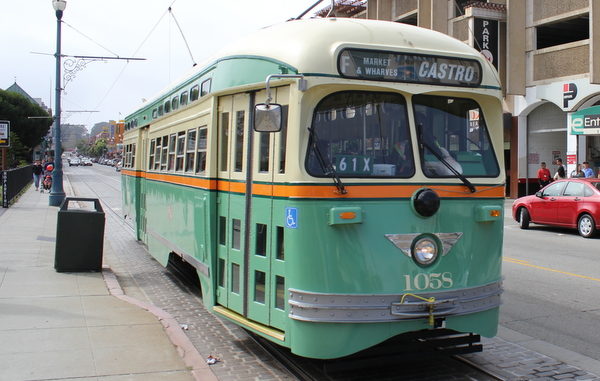
The Metropolitan Transportation Commission (MTC), the nine-county San Francisco Bay Area’s transportation planning, coordinating and financing agency, recently allocated $494 million to help several agencies buy new equipment.
The money will be used by more than 20 Bay Area transit agencies replace or rehabilitate aging buses, ferries, rail cars, tracks and bridges; update safety, control and communications systems; install new fare-collection equipment; maintain services for elderly and disabled passengers; and make other capital improvements. The commitment includes $447 million of federal transportation funds, supplemented by $47 million of revenues from the Bay Area’s seven state-owned toll bridges.
“Job one for the Commission is what we call ‘Fix it First,’ which means taking care of the transportation system we already have,” MTC Chair and Santa Clara County Supervisor Dave Cortese said in a news release. “We’re also committed to putting federal transportation dollars to work right away. With last month’s passage by Congress of the new FAST Act, we finally have some certainty about the level of federal funding coming to the region for the next several years. This allowed us not only to take a big programming action for transit capital priorities in the current fiscal year, but also to begin committing to transit capital investments in upcoming years”
Projects include roughly $50 million for BART’s rail car replacement program; $17 million to update deteriorating segments of the BART railway; $97 million to accelerate San Francisco Muni’s replacement of dozens of buses and trolley coaches; $36 million for AC Transit to buy 10 new double-deck buses and replace more than 30 of its older 40- and 60-foot buses; and nearly $17 million to replace two aging San Francisco Bay Ferry vessels.
Other agencies set to acquire new vehicles in the coming months include VTA, SamTrans, Marin Transit, WestCAT, Petaluma Transit, Santa Rosa City Bus, Sonoma County Transit and the Livermore-Amador Valley Transit Authority. The allocation also reserves about $52 million for Caltrain’s planned replacement of diesel-powered trains with electric vehicles as part of its system electrification and positive train control initiatives.

